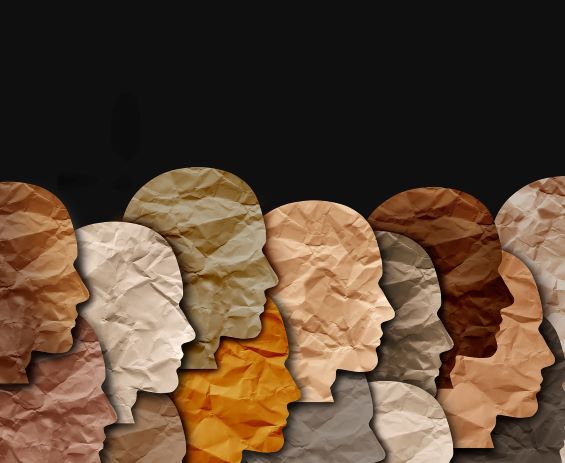Exploring the bane of the modern lifestyle
By Chitwan Khosla, Features Editor
Humans, like their ancestors the primates, are social animals. Throughout the evolution of mankind, humans have stayed in groups, tribes, and communities. Social contact with other people is what makes us human and lays the very foundation for the concept of humanity. Feral children have proven this time and again. Because they were raised by animals without any human interaction, they not only behave and think like animals but they also show signs indicating they don’t realize that they can do unique things because of their physical capabilities and limitations.
We have come a long way from our ancient social structure, where we fought for territories with neighbouring tribes and lived in caves, but our emotions are just the same. We feel happy to see familiar faces, get excited to see things we like or find interesting, feel intimidated by sudden intrusions from strangers, and feel sad when we get hurt. All these emotions and feelings are prevalent not simply because we are biologically tuned like that, but also because we live with people, and we panic if this essential contact lessens.
Recent studies have shown that many health issues like heart problems, especially in elderly people, are linked to loneliness or loss of social connectivity. Anxiety, desperation, and depression are largely caused when people are unable to express themselves, just because they have no one to talk to. Simple gestures like handshakes and smiles can make anyone who feels lonely very comfortable.
In her article “Life of Solitude,” published in the Globe and Mail, writer Elizabeth Renzetti claimed: “In Vancouver, residents recently listed social isolation as their most pressing concern. More Canadians than ever live alone, and almost one-quarter describe themselves as lonely. In the United States, two studies showed that 40 per cent of people say they’re lonely, a figure that has doubled in 30 years.”
These statistics show that loneliness is a prevalent phenomenon that is increasing rapidly. It is affecting our society in an unusual way, and we are failing to realize the gravity of the situation. Let’s evaluate our own situations and ask ourselves a few questions. Do I go out a lot to cheer myself up? Do I speak a lot whenever I get the chance to? Can I talk to someone about my feelings without feeling hesitant? Do I take time to catch up with my old friends? These questions do not have a right or a wrong answer, neither can they be answered with a “yes” or “no” without being followed by a “but.”
Most of us may not agree that we are alone, despite experiencing the despair. Professor Ami Rokach, a psychologist and a lecturer at York University in Toronto, told Renzetti, “There is such a stigma about it. People will talk about having depression or even schizophrenia, but […] I’ve been practicing for more than 30 years, and never has anyone come to me and said, ‘I feel lonely.’ But then they start talking, and it comes out.” Why do we feel so hesitant or embarrassed to accept that we are alone?
Psychologists have discovered that people who feel lonely also feel rejected, reports NewRepublic.com. The unwillingness to acknowledge rejection and other shortcomings is one of the major reasons behind our denial of loneliness. Another reason is that we don’t want to be judged.
We are so caught up in our busy lifestyles that demand 40–50 hours of weekly work shifts to fulfill our basic needs, extensive study hours to get better grades, and weekends to catch up on lost sleep. Relationships have become so delicate and often don’t survive, again due to the vicious cycle of work-home-work. This again, leads to one common consequence: loneliness. We all crave for someone who understands us and will always be there for us, but not many can brag about having one.
Many survival stories of people who were stranded in oceans, forests, and other places, have a certain aspect in common. Apart from their unwavering courage and will to live, all at some point discussed how frightened they were of dying alone. Doctors and psychologists support these facts, saying that the need for someone to talk to and be cared for by increases proportionally with illness and old age. However, social isolation is not restricted to people in nursing or retirement homes. In her article, Renzetti mentioned a study that reported that almost two-thirds of Canadian university students (out of the 34,000 asked) said that they felt “very lonely.”
Not limited by demographics, loneliness is a plague that is rotting our society. Loneliness increases the release of stress hormones, making it difficult to cope with difficult situations. People from all walks of life need to understand that nobody is completely alone. Healthy social interactions are as necessary for our emotional and mental well-being as healthy food is for our good physical health. Being able to talk, express, and share thoughts in such depth is a virtue no other life form on this planet other than humans enjoys. Language was created to assist in conversations, but not for being used only on Facebook or Twitter. Texting and sharing pictures or videos can never replace a face-to-face interaction. The illusion of being able to connect to hundreds of people at a time makes us ignore the person standing nearby who would actually pay heed to what we say. A million likes or retweets can never match a single warm hug from someone we love.
Our habit of constantly comparing ourselves with others—looking at their pictures and statuses on social media and thinking they have better and happier lives than us—makes us feel inferior, and we tend to avoid talking to these “superior” people. It is painfully sad that, instead of making our lives more productive, we start making it worse when we see someone else happy. This behaviour encourages solitude and pessimism.
No matter how many friends we have, how many parties we attend, or how many vacations we take in a year, the factor that measures how happy we are is very simple—quality time. Quality time with our families, friends, peers, and even strangers makes us feel content and stress-free.
We can make a difference in the lives of others and our own by participating in community. Group therapy can be found with the help of meetings to discuss various topics, and classes for cooking, knitting, art, and more, is a simple, effective, and creative way to handle loneliness crisis. Taking some time to talk to your family and friends and seek their advice about your life and plans is also crucial. But we must not forget that conversation is a two-way process, so we must not just talk, but also listen to others. Together, we need to grow as a community, as a society, and not focus solely on our self-interests and self-obsession. Going out should be an opportunity to learn about and nurture our relationships, and not just to relieve boredom. Norman Cousins, famous world peace advocate and winner of Albert Schweitzer Prize for Humanitarianism, aptly said: “The eternal quest of the individual human being is to shatter his loneliness.”




